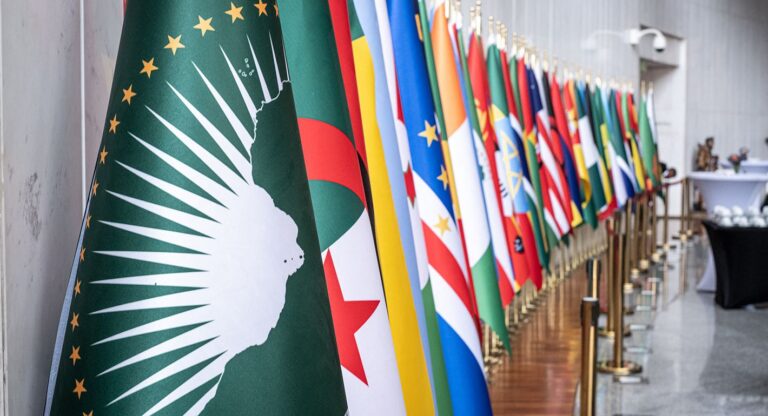At the 2025 US-Africa Business Summit held on June 24 in Luanda, Angola, African leaders and US officials held a sweeping round of strategic discussions touching on diplomacy, trade, regional peace, and infrastructure development.
Massad Boulos, Senior Adviser for Africa to former President Donald Trump, joined a 30-member US delegation led by Troy Fitrell, Acting Assistant Secretary of State for African Affairs. Their packed schedule included bilateral talks, commercial agreements, and updates on efforts to stabilize the Democratic Republic of Congo (DRC).
Key African dignitaries attending the closed-door sessions included the AU Commission Chair Mahamoud Ali Youssouf, the Presidents of Ethiopia, Botswana, and Namibia, Eswatini’s Prime Minister, and the Ghanaian Trade Minister.
Ethiopia Seeks Reinstatement to AGOA Amid Economic Fallout
Following Ethiopia’s 2022 suspension from the African Growth and Opportunity Act (AGOA), President Taye Atske Selassie used the summit to push for renewed trade access to the US market. In his private meeting with Boulos, Fitrell, and other key US officials, Selassie emphasized the urgent economic implications of AGOA’s suspension—particularly the loss of tens of thousands of jobs for Ethiopian women in export-driven industries.
“Predictable trade policies are fundamental to any long-term partnership,” Selassie said, noting Ethiopia’s interest in negotiating terms—whether under AGOA or through a fallback option like the Generalized System of Preferences (GSP), which currently permits duty-free imports from some developing countries.
Selassie addressed previous criticisms of the US from AU Chair Youssouf, who had earlier condemned Trump-era tariffs and visa restrictions. While defending Youssouf’s right to speak candidly, Selassie underlined Ethiopia’s continued respect for and partnership with the United States.
Peace Agreement in Sight for DRC-Rwanda Conflict
Boulos also used the summit to advance peace efforts between the DRC and Rwanda, foreshadowing a forthcoming White House meeting between both countries’ leaders. A formal peace agreement between their foreign ministers is expected to be signed on June 27 at the US State Department.
“Sustainable economic growth is impossible without peace and stability,” Boulos said during a panel on mineral sector investments in the DRC. “With stability, the door opens for responsible investment, transparent supply chains, and inclusive development.”
His remarks aligned with Fitrell’s own, who credited the regional economic integration model as a key factor in bringing DRC and Rwanda to the negotiating table. He described this regional framework as a “novel catalyst” for mutual benefit, driving the peace process forward in an unprecedented way.
Major Infrastructure Commitments Signal Deeper US-Africa Economic Ties
Coinciding with the diplomatic meetings, the summit also featured the signing of major commercial agreements aimed at boosting cross-border energy and industrial infrastructure.
A standout deal includes a $1.5 billion investment in a 720-mile electricity transmission line between Angola and the DRC, funded by New York-based Hydro-Link and Swiss energy firm Mitrelli.
“This project represents a transformative step toward regional energy security,” said Hydro-Link CEO Paul Hinks. “It will supply clean energy to mining sites and urban centers, stimulate local manufacturing, and create thousands of jobs.”
Designed primarily to serve the mining sector, the transmission line is also expected to power public facilities across both countries, promoting broader economic inclusion.
Outlook: Toward a New Era of Strategic Partnership
As discussions on trade frameworks, peace accords, and industrial development continue, the US-Africa Business Summit has emerged as a critical platform for redefining American engagement with the continent. With the DRC-Rwanda peace deal on the horizon and infrastructure investments gaining momentum, this year’s summit marks a shift toward mutual accountability, economic integration, and sustainable partnership.
“Our goals align when peace and prosperity are shared,” said Boulos. “That’s the foundation of everything we’re working toward.”


